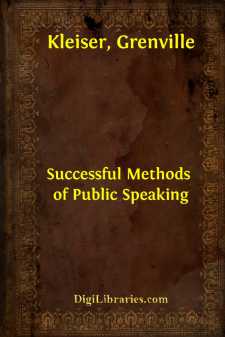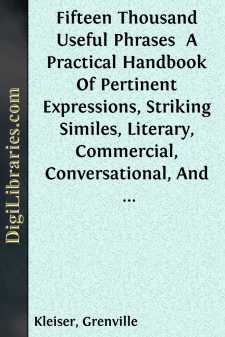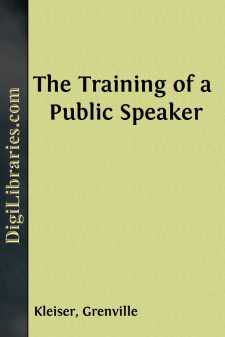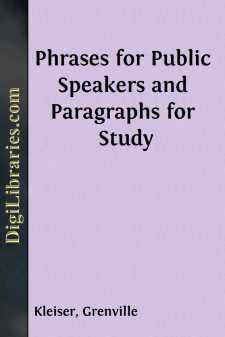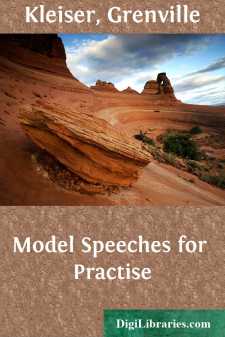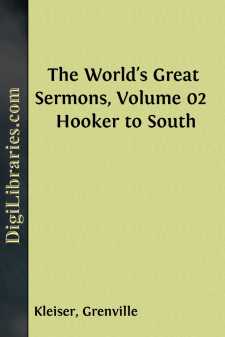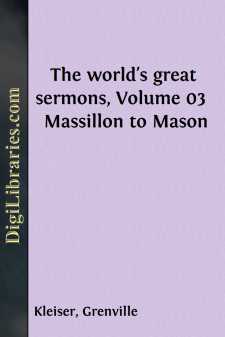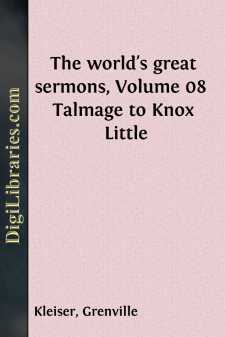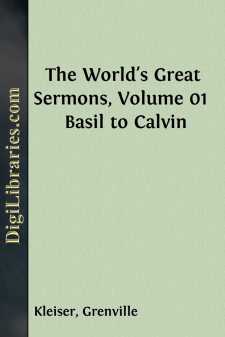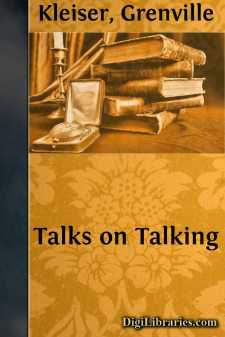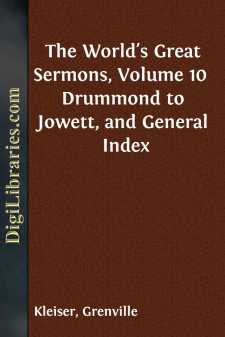Categories
- Antiques & Collectibles 13
- Architecture 36
- Art 48
- Bibles 22
- Biography & Autobiography 813
- Body, Mind & Spirit 142
- Business & Economics 28
- Children's Books 15
- Children's Fiction 12
- Computers 4
- Cooking 94
- Crafts & Hobbies 4
- Drama 346
- Education 46
- Family & Relationships 57
- Fiction 11828
- Games 19
- Gardening 17
- Health & Fitness 34
- History 1377
- House & Home 1
- Humor 147
- Juvenile Fiction 1873
- Juvenile Nonfiction 202
- Language Arts & Disciplines 88
- Law 16
- Literary Collections 686
- Literary Criticism 179
- Mathematics 13
- Medical 41
- Music 40
- Nature 179
- Non-Classifiable 1768
- Performing Arts 7
- Periodicals 1453
- Philosophy 64
- Photography 2
- Poetry 896
- Political Science 203
- Psychology 42
- Reference 154
- Religion 513
- Science 126
- Self-Help 84
- Social Science 81
- Sports & Recreation 34
- Study Aids 3
- Technology & Engineering 59
- Transportation 23
- Travel 463
- True Crime 29
Successful Methods of Public Speaking
Categories:
Description:
Excerpt
SUCCESSFUL METHODS OF PUBLIC SPEAKING
You can acquire valuable knowledge for use in your own public speaking by studying the successful methods of other men. This does not mean, however, that you are to imitate others, but simply to profit by their experience and suggestions in so far as they fit in naturally with your personality.
All successful speakers do not speak alike. Each man has found certain things to be effective in his particular case, but which would not necessarily be suited to a different type of speaker.
When, therefore, you read the following methods of various men, ask yourself in each case whether you can apply the ideas to advantage in your own speaking. Put the method to a practical test, and decide for yourself whether it is advisable for you to adopt it or not.
Requirements of Effective Speaking
There are certain requirements in public speaking which you and every other speaker must observe. You must be grammatical, intelligent, lucid, and sincere. These are essential. You must know your subject thoroughly, and have the ability to put it into pleasing and persuasive form.
But beyond these considerations there are many things which must be left to your temperament, taste, and individuality. To compel you to speak according to inflexible rules would make you not an orator but an automaton.
The temperamental differences in successful speakers have been very great. One eminent speaker used practically no gesture; another was in almost constant action. One was quiet, modest, and conversational in his speaking style; another was impulsive and resistless as a mountain torrent.
It is safe to say that almost any man, however unpretentious his language, will command a hearing in Congress, Parliament, or elsewhere, if he gives accurate information upon a subject of importance and in a manner of unquestioned sincerity.
You will observe in the historical accounts of great orators, that without a single exception they studied, read, practised, conversed, and meditated, not occasionally, but with daily regularity. Many of them were endowed with natural gifts, but they supplemented these with indefatigable work.
Chalmers
There is a rugged type of speaker who transcends and seemingly defies all rules of oratory. Such a man was the great Scottish preacher Chalmers, who was without polished elocution, grace, or manner, but who through his intellectual power and moral earnestness thrilled all who heard him.
He read his sermons entirely from manuscripts, but it is evident from the effects of his preaching that he was not a slave to the written word as many such speakers have been. While he read, he retained much of his freedom of gesture and physical expression, doubtless due to familiarity with his subject and thorough preparation of his message.
John Bright
You can profitably study the speeches of John Bright. They are noteworthy for their simplicity of diction and uniform quality of directness. His method was to make a plain statement of facts, enunciate certain fundamental principles, then follow with his argument and application.
His choice of words and style of delivery were most carefully studied, and his sonorous voice was under such complete control that he could speak at great length without the slightest fatigue. Many of his illustrations were drawn from the Bible, which he is said to have known better than any other book.
Lord Brougham
Lord Brougham wrote nine times the concluding parts of his speech for the defense of Queen Caroline. He once told a young man that if he wanted to speak well he must first learn to talk well....


